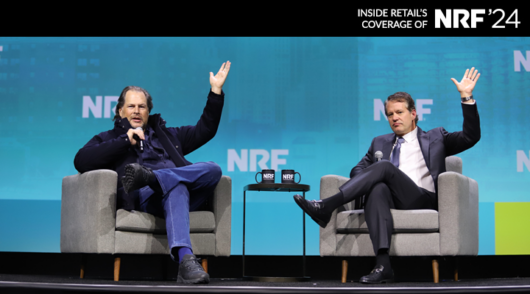Imagine sitting next to someone at a dinner party who said things like ‘Drive defines us’ or ‘Unboring the future’. You’d probably smile at them while thinking ‘what a berk’. And you’d be right.
But talking like that weird dinner party berk is how advertising seems to talk these days. Which goes against a cast iron piece of advice from reliably quotable David Ogilvy. He said, “If you’re trying to persuade people to do something, or buy something, it seems to me you should use their language, the language they use every day, the language in which they think.”
In other words – the words of Shirley Polykoff, in fact – “Copywriting is a conversation with the consumer.” And in that conversation, we should write how people talk.
So, who exactly are we talking to when we write things like, ‘Drive defines us’ or ‘Unboring the future’? Is there a market of weird dinner party guests out there who actually talk like that – and respond to that kind of talk? People who think, ‘Finally, a brand that gets me and speaks to my heart.’ A more cynical person might suggest otherwise.
What to do then? As our next Dave puts it (Trott this time), “You talk to your audience in their language, not yours. That’s the only route into their minds.”
Write like real people really think and talk
Don’t just get to the point. Get real. Write in the simplest, most conversational way you can. In the way real people really think and talk.
Real conversations are nice and easy. They’re relaxed. For the best take on this, let’s hear from Arthur Schopenhaue, who said, “Use common words to say uncommon things.”
I love that. Brilliant ideas born of simple words. It couldn’t be further from smug, oh-so pleased with itself, meaningless nonsense of ‘Unboring the future’.
Why simple, visual language works
A great example of using common words to say uncommon things isn’t from advertising, but politics. Bill Clinton was giving a speech in support of Barrack Obama. Talking about a complicated funding issue for Medicare, he used plain, visual language to make his point. He described Obama as closing the doughnut hole in the Medicare program. While his opponent wanted to make the hole bigger. Going back to Dave Trott’s point – talk to your audience in their language, not yours – everyone can picture a doughnut hole. Everyone can picture a doughnut hole getting bigger as bad – less doughnut. Everyone can picture a doughnut hole getting smaller as good – more doughnut. Everyone can relate to that. And they can relate to it far better than needlessly complex financial language they’d never use. Common words saying uncommon things.
Get specific – be vivid, not vague
Being specific helps too. Let’s compare a line that’s vague and conceptual – maybe a line like ‘Unboring the future’ – with the very specific line Steve Jobs used to launch the iPod – ‘A thousand songs in your pocket’.
Just like Bill Clinton’s doughnut hole, not a euphemism, the iPod line uses real words to say something real people really care about. A thousand songs in my pocket you say, Steve. So no more faffing about choosing which tapes to listen to in my WalkMan? Take. My. Money. Meanwhile I still have no idea what ‘Unboring the future’ means. Do you? Imagine sitting through 168 slides and then being presented with that. Never mind the mental gymnastics it must have taken to say it with conviction.
A final word from our dinner party guest
Now before dinner gets cold, let’s get back to our berk by referencing David Abbott, and his classic line for The Economist – Would you like to sit next to you at dinner? A wonderfully elegant and thought provoking question written in the simplest, clearest words. But perhaps we should re-phrase it. If copywriting is a conversation with the consumer, would you like to sit next to advertising at dinner? Clearly sitting next to someone who says ‘Unboring the future’ would be a marathon of patience. You can’t bore people into buying. You’re competing with everything they can see, hear and click. You have to offer them something. A bit of charm. A bit of wit. A truth expressed in a way that surprises and delights. All delivered in real words real people really use.
If in doubt, don’t be a berk. Don’t say things you’d never say out loud to someone at dinner. Use common words to say uncommon things. Like Bill Clinton’s doughnut hole.
Who do you want to sit next to?Just as important, is making sure you understand who your targeted audience actually is, and why, where and when to communicate to them, which will help you begin your journey to what we like to call ‘Longer thinking’ – http://ima.global.
- Adam Reynolds is Senior Copywriter at Intermarketing (IMA).






